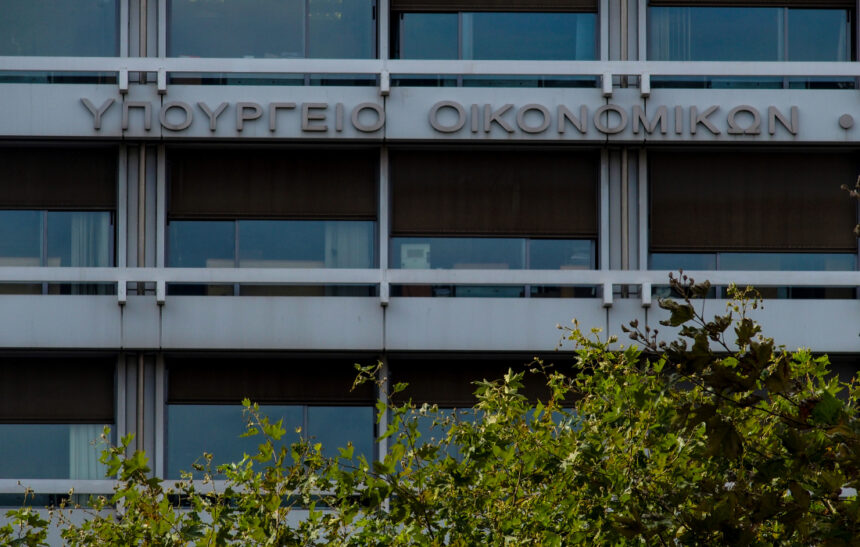What will be contained in the “blue envelope” that will be served to each minister and will be pointed out to them that in 2025 the foundations will be laid and some results will be visible from 2026 onwards
The Ministry of National Economy and Finance sets five main priorities in the exercise of economic policy for 2025 and as officials of the ministry report to APE, these are expected to be included in the “blue envelope” with the priorities per ministry for the next year that will be delivered to each minister either in tomorrow’s cabinet, or within January, pointing out that in 2025 the foundations will be laid and some results will be visible from in 2026 and beyond.
Specifically, the five priorities are the following:
1. Continuation in the fight against tax evasion. Reducing the VAT loophole is a good springboard. It is characteristic that, as Minister Kostis Hatzidakis has stated, due to the 11 initiatives taken last year, in the 9th month of this year, VAT revenues have increased by 11.2%. While, thanks to the interconnection of POS with cash registers and the use of the myData system, additional VAT revenues of the order of 1.8 billion are expected. euros in 2024.
Next year, new digital weapons will be launched by AADE in the battle against tax evasion: universal extension of myData for declaration of income and expenses, extension of mandatory Electronic Invoices, Digital Delivery Note and Digital Client List. It should be noted that the State Budget Office in the Parliament, as it became known last Wednesday, considers the goal of collecting additional revenues of 2.5 billion as feasible. euros from the crackdown on tax evasion on a permanent basis from 2025, considering that it is very likely that VAT revenues will exceed 2 billion. euros already this year. Noting that the additional revenues are preferable to be directed to reductions of direct taxes and not indirect ones, in order for this reduction to act as an incentive for an increase in work. Something with which the agents of the MINISTRY agree.
2. Utilization of public property and privatizations. According to information, there will be legislation for a Public Property Code. The plan for the utilization of ETAD properties by grouping and creating holding companies, in which private investors will be invited to participate, is in the implementation stage. At the same time, priority is being given to the utilization of iconic properties.
The McKinsey company will coordinate the project related to the mapping, assessment and valuation of 36,000 properties of EDTA. It is expected that 6,000 properties will be valued, while in the end up to 1,000 of them will enter an immediate maturation and exploitation plan. The properties, after studies, will be grouped and included in holding companies that will be created. Subsequently, the holding companies will enter the concession process, instead of each property separately. In these companies, the State can keep a minority stake and private individuals will undertake the exploitation of the properties.
On the privatization front, revenues of 1.88 billion are expected in 2025. euro. From 2011, the year of establishment of TAIPED, until today, 13 billion have flowed into the state coffers. euros, while by the end of 2025 the amount is estimated to reach 14.889 billion. euro. Amounts that contribute decisively to the reduction of public debt, through the utilization of State assets.
3. Implementation of the legislative regulation for banks and servicers. These include, among others: abolition of bill payment fees, a drastic reduction of up to 80% in money transfer fees between banks, doubling of the ENFIA for foreclosed residential properties held by banks and servicers to be channeled into the market, and easier access to lending through the elimination of restrictions on financing by Credit Companies.
At the same time, the banks will have to proceed voluntarily to the disposal of 100 million. euros for the reconstruction of schools and 100 million euros for the creation of the Agency for the Acquisition and Re-leasing of Real Estate whose aim is to protect the homes of vulnerable citizens. The cost of interventions from the reduction or elimination of bank commissions amounts to 150 million. euros every year, an amount which, according to the Ministry of Finance, translates into a corresponding relief for the citizens. The provision on the reductions in bank fees will be implemented in one month from its passing.
4. Intensification of the effort for further convergence with the other EU member states. Namely, achieving primary surpluses, with high growth, reduction of public and private debt, and reduction of unemployment. Based on the estimates of the State Budget Office in the Parliament, the primary surplus, based on the published budget execution data, gathers for the current year strong possibilities to be formed at levels of 2.5% to 2.8% of the GDP, also exceeding the new revised budget targets. While, for 2025, GPKB estimates that the growth rate could range from 2.2% to 2.5%.
5. Emphasis on the so-called middle class. In addition to the reductions in insurance contributions, the pretension fee, the presumptions and the special regime for the EFFK in agricultural oil, the officials of the ministry point out that “whatever additional fuel arises will also be used”, meaning mainly the revenues from the development and tax evasion. And they characteristically add that the rates of direct taxation will also be examined.




